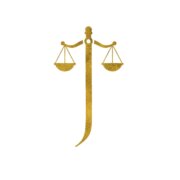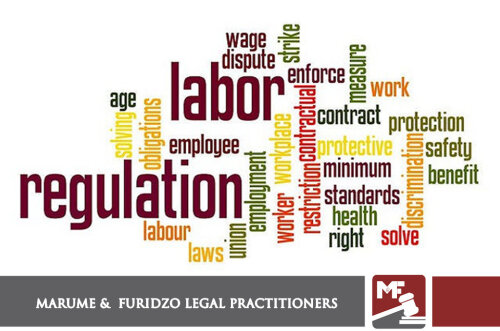Best Adoption Lawyers in Zimbabwe
Share your needs with us, get contacted by law firms.
Free. Takes 2 min.
Free Guide to Hiring a Family Lawyer
Or refine your search by selecting a city:
List of the best lawyers in Zimbabwe
About Adoption Law in Zimbabwe
Adoption in Zimbabwe is primarily governed by the Adoption Act [Chapter 5:06], which outlines the legal framework for adopting a child within the country. This process is designed to ensure that the best interests of the child are prioritized. Adoption can be a complex legal process that involves multiple stages including application, assessment, and court approval. It is available to individuals and couples who meet specific criteria set by the local authorities. The process aims to provide a permanent family for children who cannot be raised by their biological parents.
Why You May Need a Lawyer
Several situations may necessitate the need for a lawyer when considering adoption in Zimbabwe:
- Understanding the legal requirements: A lawyer can help interpret and navigate the complex legal requirements and paperwork involved.
- Guidance through the process: Legal professionals can provide step-by-step guidance throughout the adoption process, ensuring all procedures are correctly followed.
- Resolving disputes: In cases of disputes or complications, such as contestation by biological parents, a lawyer can represent your interests.
- Inter-country adoption complexities: Lawyers can assist in managing the additional complexities if you are an expatriate or are considering adopting a child from another country.
- Post-adoption legalities: Legal advice may be required to address matters such as citizenship, name changes, and inheritance rights for the adopted child.
Local Laws Overview
Zimbabwe's Adoption Act sets out the legal process and requirements for adoption. Key aspects include:
- Eligibility: Prospective adoptive parents must be at least 25 years old and at least 21 years older than the child they wish to adopt.
- Consent: The consent of the biological parents or the legal guardian is required, unless the court determines otherwise under specific circumstances.
- Welfare of the child: All decisions are made based on the welfare and best interests of the child, which is the paramount consideration in any adoption proceeding.
- Adoption order: An adoption order is granted by the High Court after a thorough review process that includes psychological assessments and home visits conducted by social services.
- Confidentiality: Adoption records in Zimbabwe are generally kept confidential to protect the privacy of all parties involved.
Frequently Asked Questions
What is the average duration of the adoption process in Zimbabwe?
The adoption process in Zimbabwe can typically take from six months to a year, depending on the specific circumstances and any complexities that arise.
Can single individuals adopt a child in Zimbabwe?
Yes, single individuals can adopt a child in Zimbabwe, provided they meet the necessary eligibility criteria set out in the Adoption Act.
Are there any restrictions on adopting children of a different race or ethnicity?
No, there are no legal restrictions on adopting children of a different race or ethnicity in Zimbabwe. The primary concern is the welfare and best interests of the child.
Is it possible to adopt a relative, such as a niece or nephew?
Yes, it is possible to adopt a relative as long as all legal requirements are met and proper consent is obtained from the relevant parties.
What happens if a biological parent refuses to give consent?
If a biological parent refuses consent, the court may intervene and consider whether adoption is in the best interests of the child, potentially overriding the parent's refusal.
Are foreigners allowed to adopt children in Zimbabwe?
Foreigners may be allowed to adopt a child in Zimbabwe, but they must comply with both Zimbabwean laws and the laws of their home country, and usually require additional documentation and approvals.
What fees are involved in the adoption process?
There are various fees involved, including legal fees, court fees, and fees for assessments and reports by social workers. The costs can vary depending on the case.
Does an adopted child have the right to inherit from adoptive parents?
Yes, once the adoption is legally finalized, the adopted child has the same rights as a biological child, including the right to inherit from the adoptive parents.
Can an adoption order be revoked?
An adoption order is generally considered final, but it may be revoked in exceptional circumstances, such as fraud or if it is in the best interests of the child.
What post-adoption support is available?
Post-adoption support can include counseling services, support groups, and resources provided by social services to help the child and adoptive family adjust.
Additional Resources
For more information and support, consider the following resources:
- Department of Social Services: Offers guidelines and support for prospective adoptive parents.
- Zimbabwean High Courts: Provides legal frameworks and information about the adoption process.
- Adoption Support Organizations: Such as local NGOs that provide support services for adoptive families.
- Legal Aid Clinics: Offer free or subsidized legal assistance to those who qualify.
Next Steps
If you are considering adoption and need legal assistance, it is recommended to:
- Research thoroughly: Collect as much information as possible about the process and requirements.
- Consult with a lawyer: Engage a lawyer who specializes in family or adoption law to guide you through the process.
- Contact social services: Reach out to your local Department of Social Services for initial advice and assessments.
- Prepare required documents: Gather and prepare all necessary documents, such as identification, financial statements, and personal references.
- Attend information sessions: Participate in workshops or sessions offered by adoption agencies or social services.
Following these steps can help ensure a smoother and more informed adoption journey.
Lawzana helps you find the best lawyers and law firms in Zimbabwe through a curated and pre-screened list of qualified legal professionals. Our platform offers rankings and detailed profiles of attorneys and law firms, allowing you to compare based on practice areas, including Adoption, experience, and client feedback.
Each profile includes a description of the firm's areas of practice, client reviews, team members and partners, year of establishment, spoken languages, office locations, contact information, social media presence, and any published articles or resources. Most firms on our platform speak English and are experienced in both local and international legal matters.
Get a quote from top-rated law firms in Zimbabwe — quickly, securely, and without unnecessary hassle.
Disclaimer:
The information provided on this page is for general informational purposes only and does not constitute legal advice. While we strive to ensure the accuracy and relevance of the content, legal information may change over time, and interpretations of the law can vary. You should always consult with a qualified legal professional for advice specific to your situation.
We disclaim all liability for actions taken or not taken based on the content of this page. If you believe any information is incorrect or outdated, please contact us, and we will review and update it where appropriate.
Browse adoption law firms by city in Zimbabwe
Refine your search by selecting a city.

















